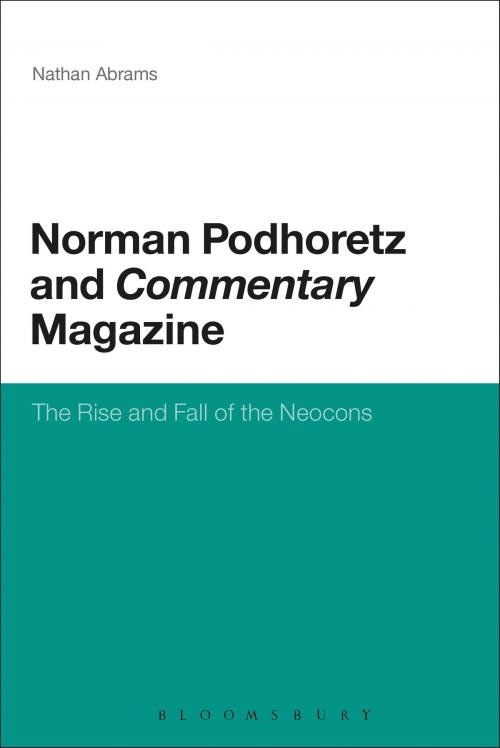Norman Podhoretz and Commentary Magazine
The Rise and Fall of the Neocons
Nonfiction, Social & Cultural Studies, Political Science, Politics, History & Theory| Author: | Nathan Abrams | ISBN: | 9781441131546 |
| Publisher: | Bloomsbury Publishing | Publication: | October 27, 2011 |
| Imprint: | Continuum | Language: | English |
| Author: | Nathan Abrams |
| ISBN: | 9781441131546 |
| Publisher: | Bloomsbury Publishing |
| Publication: | October 27, 2011 |
| Imprint: | Continuum |
| Language: | English |
What does the term "neoconservative" mean? Who are we talking about and where did they come from? Abrams answers those very questions through a detailed and critical study of neoconservatism's leading thinker, Norman Podhoretz, and the magazine he edited for 35 years, Commentary.
Podhoretz has been described as "the conductor of the neocon orchestra" and through Commentary Podhoretz powerfully shaped neoconservatism. Rich in research, the book is based upon a wide range of sources, including archival and other material never before published in the context of Commentary magazine, including Podhoretz's private papers. It argues that much of what has been said about neoconservatism is the product of willful distortion and exaggeration both by the neoconservatives themselves and their many enemies.
From this unique perspective, Abrams examines the origins, rise, and fall of neoconservatism. In understanding Podhoretz, a figure often overlooked, this book sheds light on the origins, ideas, and intellectual pedigree of neoconservatism.
What does the term "neoconservative" mean? Who are we talking about and where did they come from? Abrams answers those very questions through a detailed and critical study of neoconservatism's leading thinker, Norman Podhoretz, and the magazine he edited for 35 years, Commentary.
Podhoretz has been described as "the conductor of the neocon orchestra" and through Commentary Podhoretz powerfully shaped neoconservatism. Rich in research, the book is based upon a wide range of sources, including archival and other material never before published in the context of Commentary magazine, including Podhoretz's private papers. It argues that much of what has been said about neoconservatism is the product of willful distortion and exaggeration both by the neoconservatives themselves and their many enemies.
From this unique perspective, Abrams examines the origins, rise, and fall of neoconservatism. In understanding Podhoretz, a figure often overlooked, this book sheds light on the origins, ideas, and intellectual pedigree of neoconservatism.















